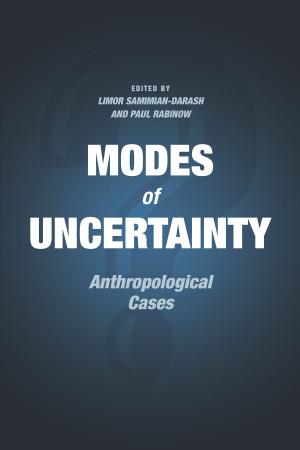Rubble
Unearthing the History of Demolition
Nonfiction, Art & Architecture, Architecture, History, Business & Finance, Industries & Professions, Industries, Social & Cultural Studies, Social Science, Anthropology| Author: | Jeff Byles | ISBN: | 9780307421548 |
| Publisher: | Crown/Archetype | Publication: | December 18, 2007 |
| Imprint: | Crown | Language: | English |
| Author: | Jeff Byles |
| ISBN: | 9780307421548 |
| Publisher: | Crown/Archetype |
| Publication: | December 18, 2007 |
| Imprint: | Crown |
| Language: | English |
From the straight boulevards that smashed their way through rambling old Paris to create the city we know today to the televised implosion of Las Vegas casinos to make room for America’s ever grander desert of dreams, demolition has long played an ambiguous role in our lives. In lively, colorful prose, Rubble rides the wrecking ball through key episodes in the world of demolition. Stretching over more than five hundred years of razing and toppling, this story looks back to London’s Great Fire of 1666, where self-deputized wreckers artfully blew houses apart with barrels of gunpowder to halt the furious blaze, and spotlights the advent of dynamite—courtesy of demolition’s patron saint, Alfred Nobel—that would later fuel epochal feats of unbuilding such as the implosion of the infamous Pruitt-Igoe housing complex in St. Louis.
Rubble also delves beyond these bravura blasts to survey the world-jarring invention of the wrecking ball; the oddly stirring ruin of New York’s old Pennsylvania Station, that potent symbol of the wrecker run amok; and the ever busy bulldozers in places as diverse as Detroit, Berlin, and the British countryside. Rich with stories of demolition’s quirky impresarios—including Mark Loizeaux, the world-famous engineer of destruction who brought Seattle’s Kingdome to the ground in mere seconds—this account makes first-hand forays to implosion sites and digs extensively into wrecking’s little-known historical record.
Rubble is also an exploration of what happens when buildings fall, when monuments topple into memory, and when “destructive creativity” tears down to build again. It unearths the world of demolition for the first time and, along the way, throws a penetrating light on the role that destruction must play in our lives as a necessary prelude to renewal. Told with arresting detail and energy, this tale goes to the heart of the scientific, social, economic, and personal meaning of how we unbuild our world.
Rubble is the first-ever biography of the wrecking trade, a riveting, character-filled narrative of how the black art of demolition grew to become a multibillion-dollar business, an extreme spectator sport, and a touchstone for what we value, what we disdain, who we were, and what we wish to become.
From the straight boulevards that smashed their way through rambling old Paris to create the city we know today to the televised implosion of Las Vegas casinos to make room for America’s ever grander desert of dreams, demolition has long played an ambiguous role in our lives. In lively, colorful prose, Rubble rides the wrecking ball through key episodes in the world of demolition. Stretching over more than five hundred years of razing and toppling, this story looks back to London’s Great Fire of 1666, where self-deputized wreckers artfully blew houses apart with barrels of gunpowder to halt the furious blaze, and spotlights the advent of dynamite—courtesy of demolition’s patron saint, Alfred Nobel—that would later fuel epochal feats of unbuilding such as the implosion of the infamous Pruitt-Igoe housing complex in St. Louis.
Rubble also delves beyond these bravura blasts to survey the world-jarring invention of the wrecking ball; the oddly stirring ruin of New York’s old Pennsylvania Station, that potent symbol of the wrecker run amok; and the ever busy bulldozers in places as diverse as Detroit, Berlin, and the British countryside. Rich with stories of demolition’s quirky impresarios—including Mark Loizeaux, the world-famous engineer of destruction who brought Seattle’s Kingdome to the ground in mere seconds—this account makes first-hand forays to implosion sites and digs extensively into wrecking’s little-known historical record.
Rubble is also an exploration of what happens when buildings fall, when monuments topple into memory, and when “destructive creativity” tears down to build again. It unearths the world of demolition for the first time and, along the way, throws a penetrating light on the role that destruction must play in our lives as a necessary prelude to renewal. Told with arresting detail and energy, this tale goes to the heart of the scientific, social, economic, and personal meaning of how we unbuild our world.
Rubble is the first-ever biography of the wrecking trade, a riveting, character-filled narrative of how the black art of demolition grew to become a multibillion-dollar business, an extreme spectator sport, and a touchstone for what we value, what we disdain, who we were, and what we wish to become.















